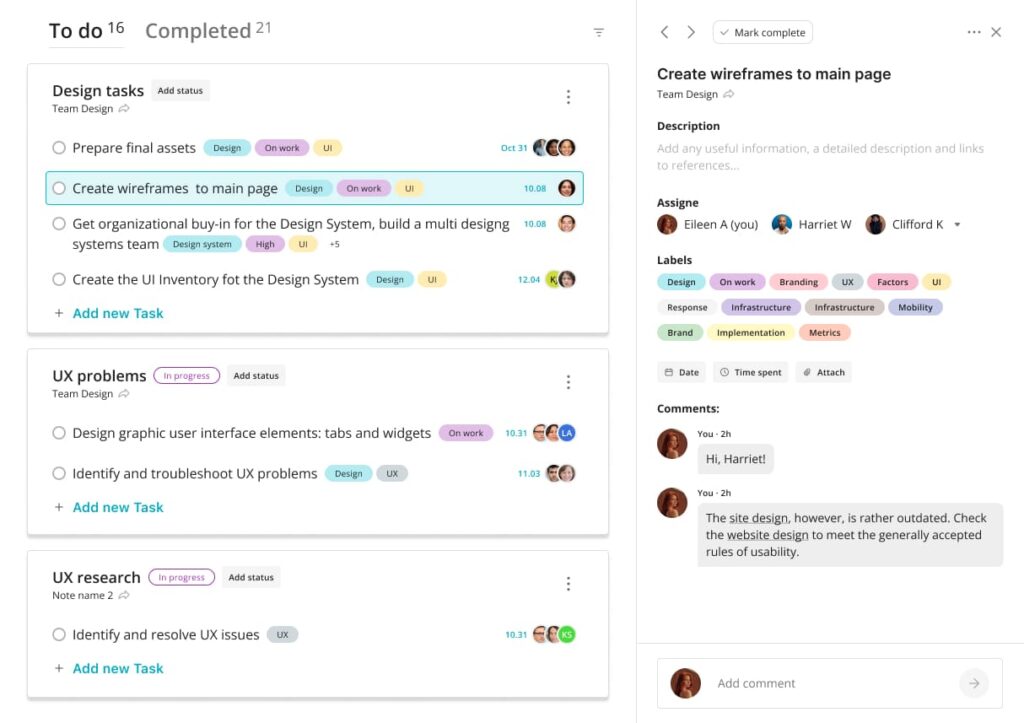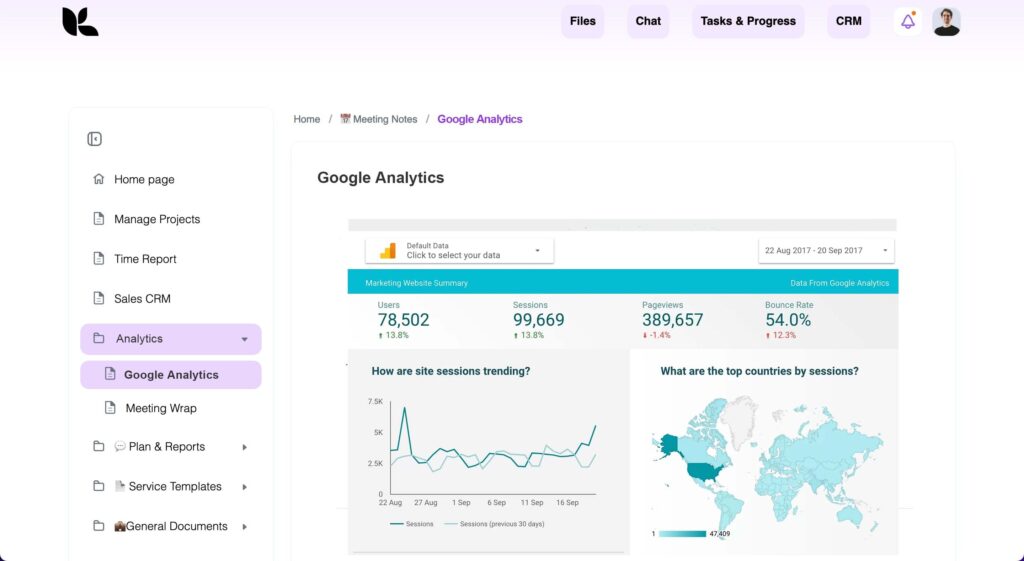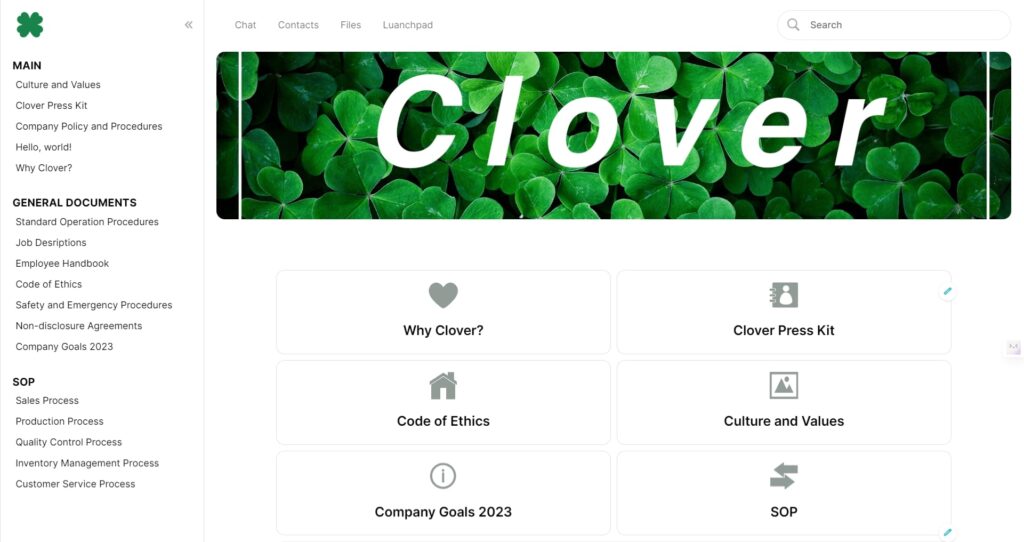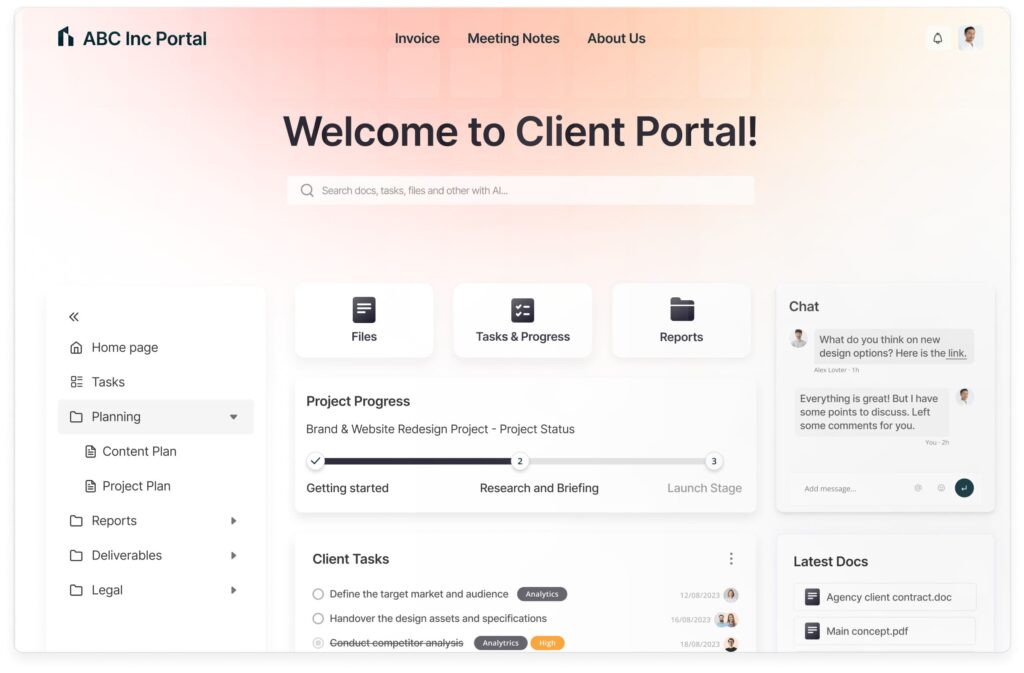
Onboarding vs. Implementation: Do You Need Both?
- 9 Min read
Having a successful customer service management strategy in place is essential to stay ahead of the competition. It not only contributes towards satisfied customers but also leads to business growth. This guide explores all aspects related to effective customer service, its key components, necessary tools, technologies, and techniques for improvement. Keep reading this blog post if you want to learn more about providing top-notch services that benefit your customers and help grow your enterprise at the same time!
Dive deeper into the world of customer service excellence. Explore our article to uncover essential strategies, technologies and the best tools that transform customer experiences.
Customer service management (CSM) is focused on understanding customer needs, setting up proficient teams and delivering the highest quality customer care to increase satisfaction. The goal of CSM is to ensure all consumer interactions and customer complaints are efficient and provide a satisfactory result, leading to loyalty with the potential for repeat business or even advocacy. To be successful in this endeavor, careful planning is essential, such as improving operations related to services so customers can obtain quick resolutions regarding inquiries or issues they may have about their purchased products’ usage, warranty details, etc. It also means equipping professionals with knowledge about what your organization offers so expectations are met appropriately
Not only does building competent teams help meet goals, but gathering customer data helps build trust, which aids customer retention rates while guaranteeing overall contentment levels remain high.
Customer satisfaction is dependent on a business recognizing and fulfilling the needs of its customers. For this reason, customer service managers or customer relationship management are imperative in understanding both what services can be provided and any supplementary offerings to help achieve maximum client happiness. To ensure overall gratification from patrons, businesses must often adjust or set up effective systems that keep pace with growth for all stakeholders involved. As an example, Reverb — an online marketplace focusing on musical instruments — implemented self-service features such as FAQs so clients could try solving issues themselves before calling support personnel from multiple channels. Taking advantage of these new options led directly to reducing contact per agent by 50% while also increasing usage of web widgets significantly, which improved the customer experience entirely — indicating true success that stems from responding positively to customer requests!

For delivering effective support and ensuring customer satisfaction, having strong customer service agents is paramount. Establishing an efficient squad necessitates recruiting personnel who can meet the needs of the organization and providing them with proper training and resources. Equipping service agents with appropriate tools also contributes to improved performance in terms of attending to customers appropriately, which helps enhance consumer contentment and service requests. To optimize data sharing between teams for complex inquiries, integrating systems that enable this connection will surely boost quality levels of such operations towards serving clients better, resolving all kinds of customer issues and and improving customer loyalty.
Good customer service management is a critical factor for cultivating consumer loyalty, fostering retention rates and sparking business growth. By making customer trust over the long term an essential priority, firms can guarantee customers have pleasant experiences that lead to greater success through better client services.
Real-time insights allow agents to supply improved support solutions that yield contented patrons and a higher percentage of repeat purchasers. A meticulously crafted plan of action in terms of CSM also makes it easier for teams’ training plans plus burden balancing while obtaining necessary recognition from involved parties.
Automated problem-solving provides financial savings and facilitates wise self-service options alike. Following best practices along with taking advantage of suitable technologies are crucial pieces towards setting up a sturdy basis on behalf of effective Customer Service Management (CSM).
In order to provide an effective level of customer service and a unified view of all customer relations, businesses need to make use of three core elements: simplifying operations through customer relationship management software, leveraging omnichannel workflow management and working on improving response times and efficiency. By focusing on these components, it is possible for companies to deliver consistent support across multiple channels.

Streamlining operations is a way to upgrade the effectiveness of any business by optimizing and automating its procedures. This can be done through improving existing processes, scrutinizing for wasteful or unnecessary tasks, implementing adjustments that streamline workflow productively and discarding those that are redundant. AI technology can also help identify restrictions while services become faster via amending front-, middle- and back-office activities, all with an eye towards increasing customer service satisfaction and boosting response times alongside providing improved efficiency altogether. Improved customer experiences are achievable when businesses use this approach to achieve desired results.
CRM software is specifically designed to manage customer relations, providing organizations with tools for organizing and monitoring their interactions. It typically features contact management, sales tracking, service management, marketing automation and analytics capabilities. All of these can be used by businesses in order to build stronger relationships with customers while also increasing efficiency levels across the board. Through this type of CRM system, data regarding customer history & details are easily stored, allowing a better understanding of how services should be tailored towards them individually. This allows a personalized service at any given time and helps identify targeted areas when it comes down to Marketing initiatives being deployed accordingly. Overall, an effective Customer Relationship Management platform helps optimize client satisfaction through human conversation from improved communication structures between both parties involved, creating long-lasting partnerships built upon mutual trust.
Omni-channel workflow management offers a comprehensive view of customer interactions and provides consistent, high-quality support across all channels. Companies can develop this system by setting clear roles and responsibilities, emphasizing customer service values in their culture and training employees to use appropriate technologies, such as marketing automation tools or AI chatbots to streamline the process. With these strategies in place, businesses are able to improve customer satisfaction and optimize operations while simultaneously decreasing costs.
The range of tools and technologies like marketing automation, AI-powered chatbots and social media integration make for an effective system to manage customer service. Utilizing these resources can help a business monitor their interactions with customers more easily and ensure swift response times that result in increased satisfaction, thereby enhancing the overall customer experience. Through proper usage of such systems, they are able to maximize efficiency while still delivering outstanding services at all levels, which is critical when it comes to maintaining trust from their clientele base.

Marketing automation involves the utilization of software to carry out marketing activities. Taking advantage of this technology aids businesses in optimizing their resources, elevating customer experience and providing quality service. This process allows organizations to focus on delivering personalized messages and analytics, which can enhance customer engagement.
Using CRM tools together with AI-powered chatbots and Marketing Automation tools enables companies to streamline their customer service operations and consequently boost satisfaction levels among customers. It also improves efficiency within those operations.
Integrating AI-powered chatbots into customer service operations can significantly improve efficiency and provide a variety of benefits. These applications are capable of interpreting inputs from the user, whether in text or voice form, and generating appropriate responses to their queries. They offer round-the-clock assistance with basic inquiries and free up human agents for addressing more complex matters concerning effective customer service management (CSM). This streamlines tasks related to servicing customers, making it easier for teams dealing with these issues. It also allows them to focus on providing better quality services when necessary, which could be very helpful in terms of employee satisfaction.
Businesses can enhance their reach, connect with customers and increase brand recognition through integrating social media into a digital marketing strategy. To do this effectively, there is an array of technology tools available, such as automation software to handle mundane tasks, AI-powered chatbots for efficient customer interactions and CRM applications that give insightful data about consumers’ behavior.
To increase customer satisfaction, loyalty and retention, and to improve the overall service management of a business, implementing a specialized strategy that encompasses distinct roles and responsibilities for staff along with creating an atmosphere centered around customers is essential. Training employees to be empowered in their work will also help develop successful growth for any given company.
When it comes to customer service teams, outlining duties and assigning responsibility is crucial for holding everyone accountable while looking at how the overall experience can be improved. By setting out a structure that aligns objectives and makes sure tasks are completed swiftly, businesses have an opportunity to better their service management practices. In order to pinpoint areas that need improvement when dealing with customers’ needs, surveys could be conducted along with considering customer feedback from past clients and monitoring various metrics related to client support services. Through this process, companies will see improvements in both the quality of care given plus reaching desired results when addressing what consumers want from them.
A company that focuses on customer satisfaction and excellent service from staff is what a customer-centric culture entails. Companies should employ methods to cultivate such an atmosphere, including asking for customer feedback about their experiences, appreciating loyalty by rewarding them with incentives, encouraging new customers and providing employees training in the delivery of quality client support. By doing so, companies can guarantee their team is equipped to meet all needs while making sure customers consistently receive outstanding treatment when dealing with the business overall.

Empowering and training employees is essential to ensure they possess the necessary skills and knowledge for delivering the best quality customer service and providing solutions for customer issues. To properly equip workers, outline roles to foster a client-focused environment, deploy marketing automation solutions or AI-powered chatbots and integrate social media platforms. Doing so will improve customer satisfaction, which translates into greater loyalty and less attrition. This leads to business growth through elevated levels of contentment from consumers.
By observing key performance indicators (KPIs) businesses can gain an understanding of their customer service operations, giving them the opportunity to make informed decisions and continuously advance their service management. Performance Analytics gives organizations insight into how well they are addressing customers’ needs so cost efficiency is improved with automation/self-service implementation. At the same time, it strives to supply excellent experiences for consumers, keeping a competitive edge in the marketplace as a result. Identifying areas where progress should be made or recognizing successful employees becomes possible when tracking such data metrics associated with effective customer service success.
Adopting the right tools and techniques for customer service management yields numerous benefits. An example is Tile, a Bluetooth tracker business that implemented Zendesk Agent Workspace to streamline their support services, resulting in 40% less time spent on ticket handling and 28% shorter wait times for customers. Chupi, another luxury jewelry brand that used Zendesk to integrate data from all channels and link conversations, reported an increase of 300% in care-based sales, with 69% of tickets being addressed quickly within one touch point, showing how effective customer service can aid businesses immensely while keeping customers satisfied.
For lasting success in customer service management, it is critical that businesses are able to adapt to constantly changing consumer needs and expectations. They must develop strategies such as offering efficient self-service options, personalized messaging and using AI-powered chatbots for rapid responses. By taking a flexible approach to meeting customers’ requirements, they will be at the forefront of providing superior client experiences within the competitive customer service game. This allows them to stay ahead of their rivals by ensuring unparalleled levels of personalization when engaging with customers, which boosts loyalty over time!

In the complex world of Customer Service Management, FuseBase emerges as the unrivaled solution, offering a seamless fusion of efficiency, client satisfaction and innovation.
FuseBase excels by unifying customer interactions under one intuitive interface. Unlike conventional systems that often lead to fragmented workflows, FuseBase integrates communication, content management and collaborative tools, ensuring a streamlined and efficient approach to customer service.
FuseBase prioritizes the client experience, providing businesses with the tools to create branded client portals. These portals serve as centralized hubs for updates, approvals and communication, enhancing client engagement and satisfaction. FuseBase elevates customer service to unprecedented heights by ensuring a seamless client journey.
Designed with diverse industries in mind, FuseBase caters to the unique needs of businesses, including IT services, marketing agencies and consulting firms. Its adaptability allows companies to tailor their customer service strategies, ensuring they align perfectly with their industry requirements.
FuseBase outshines traditional tools by offering an all-encompassing platform. It seamlessly integrates internal collaboration with client-facing interactions, eliminating the need for multiple disjointed systems. From task management and knowledge base creation to real-time collaboration and AI-powered insights, FuseBase provides a comprehensive solution for every aspect of customer service management.
At the heart of FuseBase lies a commitment to exceptional client satisfaction. Businesses using FuseBase can meet and exceed customer expectations by centralizing communication and enhancing collaboration. Real-time insights and seamless interactions foster deeper client relationships, paving the way for long-term loyalty and trust.
FuseBase is more than a tool; it’s a transformational experience for customer service management. Businesses that embrace FuseBase empower themselves with the tools needed to provide unparalleled client satisfaction. Elevate your customer service strategies, exceed expectations and foster lasting client relationships with FuseBase.
In today’s competitive marketplace, effective customer service management is critical for business success. By getting a handle on their customers’ needs, building strong customer service teams, incorporating customer relationship management software, and streamlining processes to match changing client expectations, businesses can foster higher levels of satisfaction and the ability to empower customers while earning greater loyalty from them. Understanding how best practices impact the successful management of customer services, as well as leveraging the right tools, are both essential in order to lay down good foundations that will enable lasting growth within any company setting.
See how FuseBase can upgrade your customer service management in one click
Customer service managers must have a commitment to putting customers first, adept communication abilities, an aptitude for resolving disputes, and the capacity to think up inventive solutions while demonstrating high levels of compassion.
Customer service management is a critical component of achieving success in the business world as it facilitates building strong connections with customers, keeps track of their information, and enables excellent customer satisfaction. Such practices can bring considerable profits to companies and grant them prominence within their industries. This type of approach ensures that loyalty remains intact while boosting growth at the same time.
The Customer Service Manager is responsible for supervising the customer service operations, training agents to meet business goals and objectives, maintaining customer satisfaction through loyalty programs, and resolving any questions or issues customers have. By giving technical assistance, they are able to boost client performance while keeping an exceptional level of support overall.
To make sure customer service management runs smoothly, help your team stay motivated by setting goals and offering rewards. Provide training opportunities for growth as well as enable quick resolutions over various platforms. Innovate with AI-assisted solutions and self-service options to personalize the customer experience.
The importance of understanding customer needs is key to delivering excellent service and fostering lasting connections with customers. This enables businesses to promptly attend to inquiries or problems, resulting in improved satisfaction from customers that will eventually build customer loyalty.
Found it useful? Share the article with your community
Get weekly tips and insights on how to grow your business